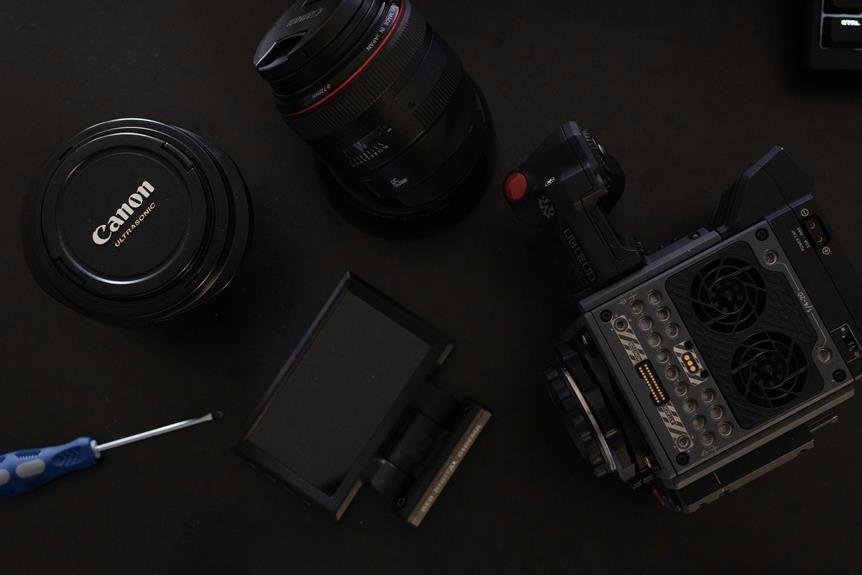
When traveling with your electronics and accessories, keeping them secure is paramount. From safeguarding against physical damage to protecting your data from cyber threats, there are various measures you can take to ensure the safety of your devices. By implementing smart practices and utilizing practical tools, you can mitigate the risks associated with traveling with electronics. Stay tuned to discover effective strategies for safeguarding your valuable gadgets and accessories while on the go.
Securing Your Electronics During Transit
When traveling with your electronics, ensure their safety by securely storing them in a protective case. This simple step can prevent damage from accidental bumps, drops, or pressure during transit. Make sure the case is specifically designed for your device to provide a snug fit and adequate protection. Additionally, consider investing in a case with extra padding or shock-absorbing materials for added security.
When packing your electronics in your luggage, place them in a central location surrounded by soft items like clothing to act as a cushion. Avoid placing heavy objects on top of your electronics, as this could cause unnecessary pressure and potential damage. It's also a good idea to keep your electronics in your carry-on bag when flying to minimize the risk of loss or theft.
Remember to double-check that all cables, chargers, and accessories are securely packed along with your devices. Keeping everything together won't only help you stay organized but also reduce the chances of misplacing essential components. By taking these precautions, you can ensure your electronics remain safe and functional throughout your travels.
Protecting Devices in Public Spaces
To safeguard your devices in public spaces, always keep them within your line of sight or securely stowed away when not in use. When you're out in public areas like cafes, airports, or hotels, it's crucial to remain vigilant and mindful of your surroundings. Thieves often target individuals who leave their electronics unattended, so make sure to keep your devices close by. If you need to step away, either take your belongings with you or ask a trusted companion to keep an eye on them.
Consider using anti-theft devices such as cable locks or alarms for added security. These measures can deter potential thieves and provide you with peace of mind while you're on the go. Additionally, avoid leaving your devices unattended on tables, chairs, or other easily accessible surfaces.
Always be cautious and proactive in protecting your electronics to prevent theft and unauthorized access to your sensitive information. By staying alert and taking proactive steps, you can keep your devices safe in public spaces.
Safeguarding Against Data Breaches
Consider implementing robust encryption protocols to protect your sensitive data from potential breaches. When traveling with electronics, especially devices like laptops, smartphones, or tablets that store personal or confidential information, it's crucial to safeguard against data breaches. Utilize encryption tools like BitLocker, FileVault, or VeraCrypt to secure your files and prevent unauthorized access. Additionally, enable two-factor authentication on your devices and accounts for an extra layer of security.
Avoid connecting to public Wi-Fi networks without using a virtual private network (VPN) to encrypt your internet connection and protect your data from potential hackers on the same network. Be cautious when sharing sensitive information online, especially when using public computers or unknown websites. Regularly update your devices' software and applications to patch any vulnerabilities that could be exploited by cybercriminals.
Ensuring Safe Charging Practices
Ensure the safety of your devices during charging by following recommended practices. When charging your electronics, always use the original charger that came with the device or a trusted third-party charger recommended by the manufacturer. Avoid using cheap or counterfeit chargers, as they may not meet safety standards and could damage your device or pose a fire hazard.
It's important to charge your devices on a stable surface to prevent them from falling and getting damaged. Additionally, never cover your device while charging, as this can lead to overheating and potentially cause a fire. Make sure to unplug your devices once they're fully charged to avoid overcharging, which can reduce battery life over time.
Regularly inspect your charging cables for any signs of wear or damage, such as fraying or exposed wires, and replace them immediately if needed. Lastly, be cautious when charging your devices in public places or using public charging stations, as these may pose security risks such as data theft or malware installation. By following these safe charging practices, you can help ensure the security and longevity of your travel electronics.




